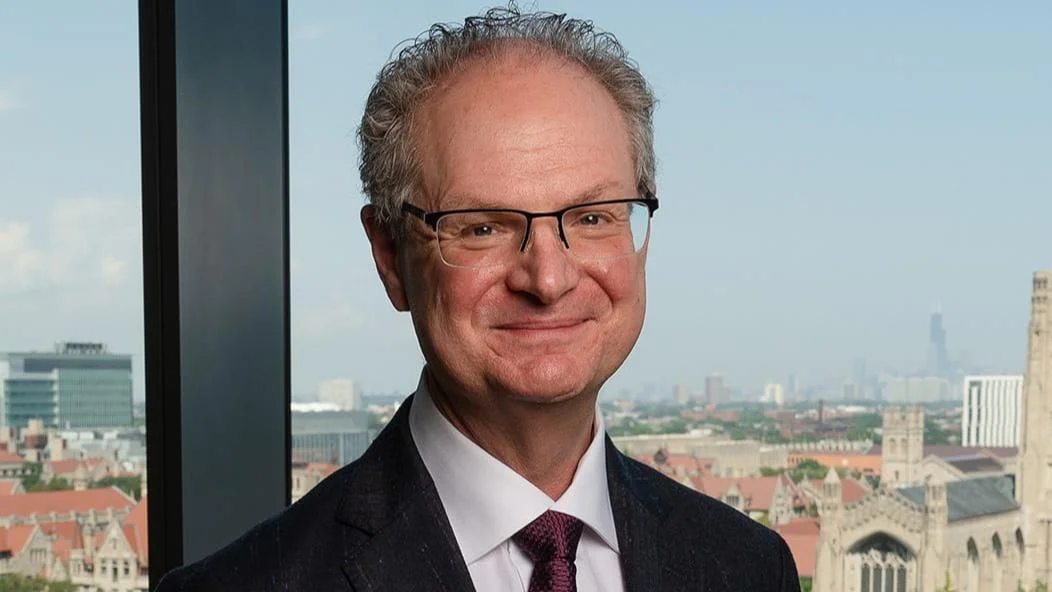Lung, melanoma, and kidney cancer patients have seen notable improvements since the Food and Drug Administration approved the first cancer immunotherapy in 2011. Immunotherapies now put many patients in remission or even cure them, but only about 20% benefit.
“The immunotherapy field had this meteoric rise, and then it stalled a bit as we tried to figure out why it didn’t work for everyone,” said Thomas Gajewski, the AbbVie Foundation Professor of Cancer Immunotherapy in the Departments of Pathology and Medicine at the University of Chicago.
“But it is starting to tick up again as resistance mechanisms are being uncovered. We are going to get to a point where immunotherapy works in a majority of patients.”
Researchers at the University of Chicago are working to understand why these therapies do not help all patients. Their efforts involve advanced biological analysis and collaboration across fields.
Cancer can avoid immune detection in several ways, such as hiding from immune cells or interfering with their environment. While theories on using the immune system against cancer date back over a century, practical advances began when scientists like Thierry Boon identified tumor antigens recognized by T cells. Gajewski’s early work helped clarify how immune checkpoint proteins like CTLA-4 prevent T cells from attacking both healthy and cancerous cells.
The breakthrough came when blocking these checkpoint proteins allowed immune cells to attack tumors. This discovery led to FDA approval for checkpoint inhibitor immunotherapies in 2011, followed by additional drugs that now treat 20 types of cancer.
“That has been the biggest success, and it is now approved for 20 different cancers,” said Gajewski, who also co-leads the Cancer and Immunology Program in the UChicago Medicine Comprehensive Cancer Center. “It’s come full circle. At first, no one in the field believed us—now, immunotherapy has become first-line therapy for many patients.”
Other approaches include CAR T-cell therapy, which involves engineering a patient’s own T cells to better target blood cancers such as leukemia and lymphoma. UChicago Medicine was the first site in Illinois to offer CAR T-cell therapy in 2017 and participates in clinical trials testing its use for autoimmune diseases.
CAR T-cell therapy “is a broad platform that we can adapt and apply to certain patient populations with diseases that have been resistant to historically standard therapies,” said Assistant Professor Satyajit Kosuri.
Tumor-infiltrating lymphocyte (TIL) therapy was recently approved by the FDA for advanced melanoma; UChicago Medicine was among the first centers nationwide to provide it. The process multiplies specialized immune cells from within tumors before reinjecting them into patients.
“Cell immunotherapies have given us a lot of excitement,” said Assistant Professor Daniel Olson, who led UChicago’s rollout of TIL therapy.
Olson reported that some patients benefit significantly: one Midwest patient traveled abroad after years fighting skin cancer. However, only about one-third to half respond positively.
“TIL has been able to cure patients who haven’t had success with other treatments,” Olson said.
UChicago researchers at the David and Etta Jonas Center for Cellular Therapy are studying whether TIL therapy could help with cervical, lung, or colon cancers.
“We’re aiming for a home run,” Olson said. “We’re looking for transformative therapies that can really alter a patient’s immune system to fight cancer on its own and do it for the long term.”
Combining immunotherapy with other treatments such as radiation is another area under study. Radiation can suppress immune responses but may be made more effective if paired with checkpoint inhibitors. Ralph Weichselbaum, Daniel K. Ludwig Distinguished Service Professor at UChicago, found that blocking certain proteins enhances radiation’s effects on tumors.
“These combinations of treatments are either in clinical trials or will soon be,” Weichselbaum said. “It’s been very gratifying. It’s a real chance to help people.”
Another focus is giving immunotherapies earlier rather than after other treatments fail. In clinical trials led by Assistant Professor Ari Rosenberg at UChicago, starting treatment with checkpoint inhibitors combined with chemotherapy improved outcomes for head and neck cancer patients while reducing side effects like difficulty swallowing.
“The results were very promising,” Rosenberg said about his study published last year in JAMA Oncology.
There remain challenges understanding why some patients do not respond well. Research teams are using single-cell RNA sequencing and spatial transcriptomics to study how immune cells interact around tumors. They found that high expression levels of CXCL10 protein attract more anti-cancer T cells—and predict better response rates—according to research published by Gajewski’s team.
Associate Professor Akash Patnaik identified another challenge: macrophages recruited into prostate tumors sometimes protect rather than destroy cancer cells due to their PD-1 expression (Clinical Cancer Research). Researchers are now developing drugs aimed at changing macrophages’ behavior so they support anti-tumor activity instead.
“We want to flip the switch on the bad guys and make them the good guys,” Patnaik said.
Patnaik sees this research as personal after losing an uncle to prostate cancer: “We’re making progress each day… As a physician-scientist…to be able to do basic research that leads to clinical trials for patients…that’s the most rewarding aspect—to be able to do basic research that leads to clinical trials for patients and then take what we learn from those clinical trials back to the lab.”
This article was originally published in Medicine on the Midway by University of Chicago's Biological Sciences Division.

